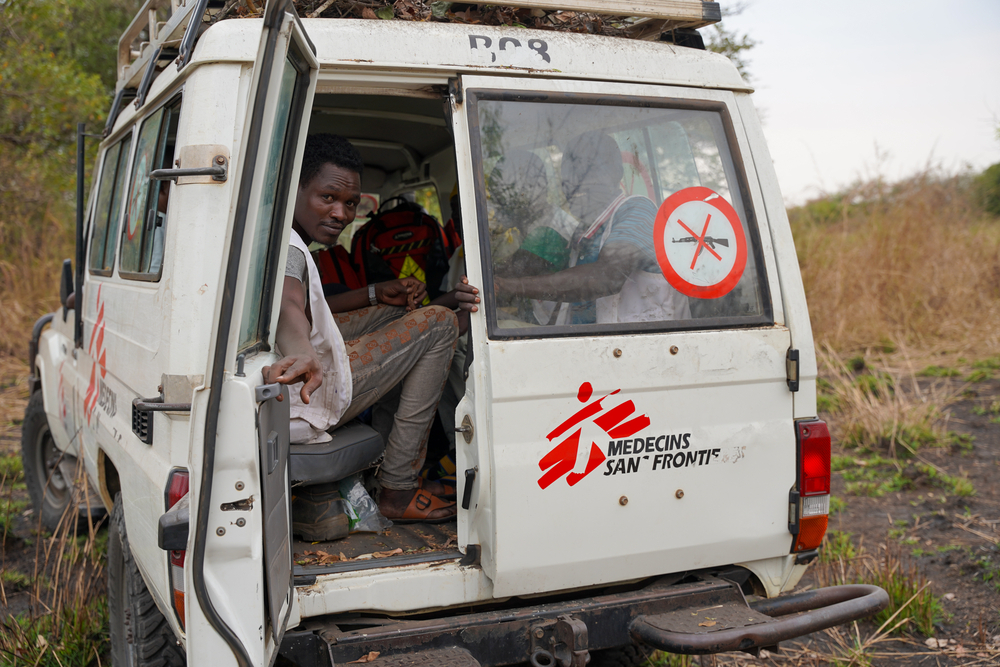Amid insecurity, semi-nomadic populations, just like the rest of South Sudan, suffer from climate change, causing both increased flooding and more severe droughts. In the latest years, water and food has been scarce, and cattle keepers and farmers had to move farther from functional healthcare facilities, worsening their access to medical care.
In remote areas, medical care is practically inexistent; less than half of the population live within five kilometres of a functional health facility. Communities struggle to access even basic medical services, sometimes walking for multiple days or crossing borders to neighbouring countries. These are their stories. This exhibition features health personnel and patients who live in the most remote areas of South Sudan, where the most basic needs cannot be met.
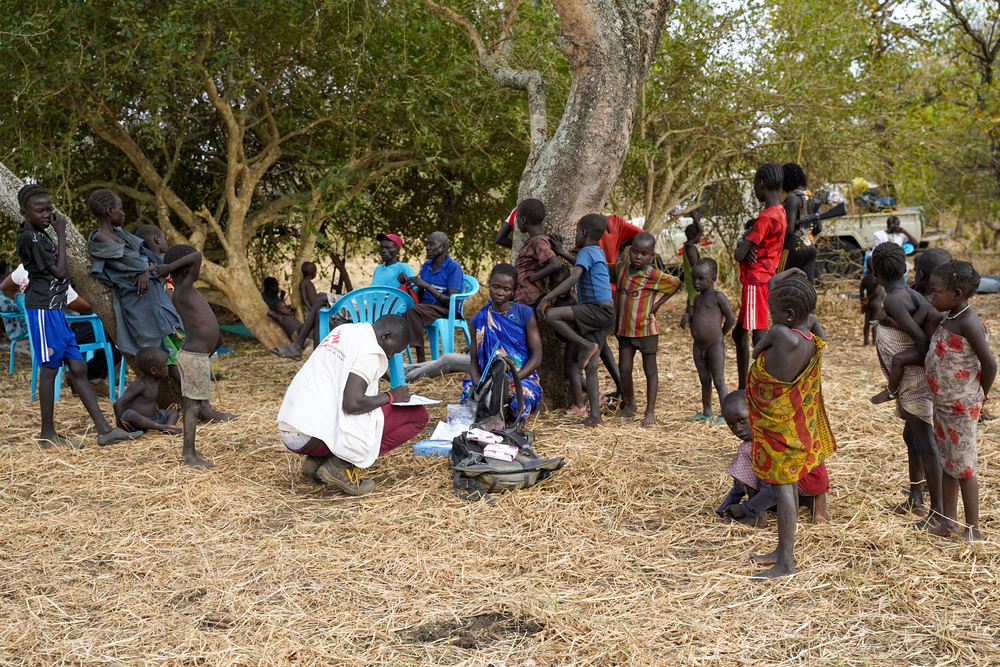
In the region of Boma, Greater Pibor Administrative Area, some communities are semi-nomadic. Cattle keepers and farmers move and settle in different areas, depending on two major components: water and security. During the rainy season, usually from June to October, routes become extremely difficult to navigate, especially on foot – the only means of transport for people. Communities settle close to Boma town where they will have access to water, food and medical care. During the dry season, communities will again follow the water and settle in the bush, extremely remote areas that are days away from the town – and from health facilities.
Among cattle keepers’ communities, roles are clearly stated. Women are responsible for building the houses, fetching wood and water, cooking and taking care of children; while men – and sometimes young boys – ought to protect both people and the cattle. Considering that cattle are at the very heart of South Sudanese culture, communities, and livelihoods, cattle raids are a severe threat, and some end up in people injured or killed.
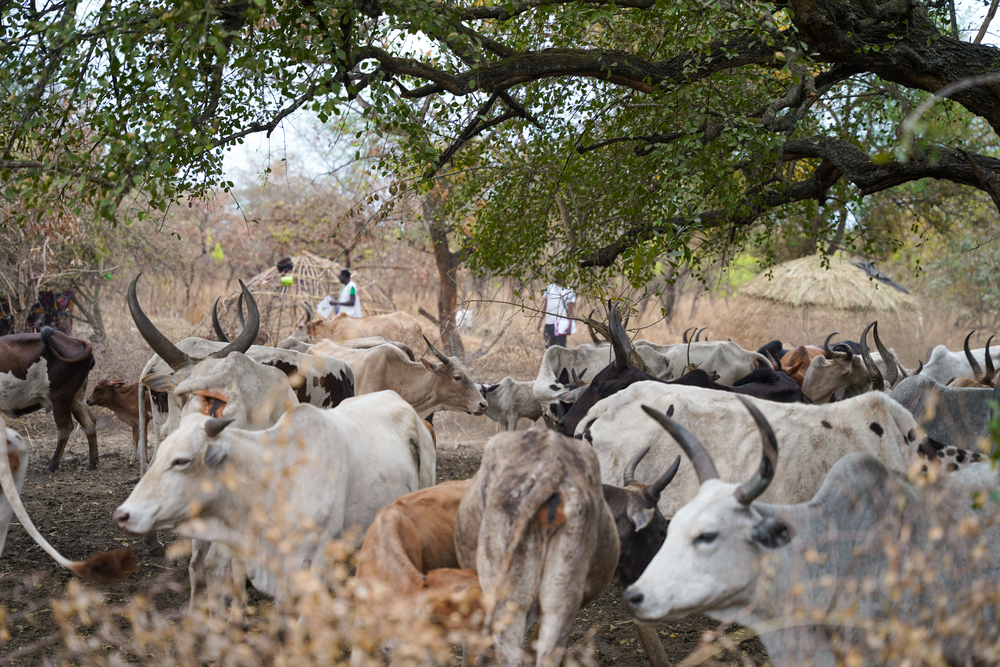
Farmers and cattle keepers’ communities live in constant danger of being attacked, looted, or killed. The increased migration of animals along odd migratory routes in search of water, particularly in agricultural areas, has caused tensions with farming groups.
Competition for water, land, cattle, and harvests never ends, resulting in distrust, grievances, and violences, particularly in Jonglei state and Greater Pibor Administrative Area.
Children and teenagers are also often victims of these conflicts, as this was the case for John, who lost his right arm at the age of 15. After realizing he couldn’t effectively defend the livestock with a missing arm, John considered acquiring an education.
That is how he ended up working as a community health educator for MSF. Now, he regularly visit cattle keepers to conduct health awareness sessions among communities that he knows very well – he is himself from a cattle keepers’ community.
Where healthcare is scarce
During the dry season, MSF teams organise outreach trips to provide medical care to the populations that settled in remote areas. Outreach can take up to four days, during which the teams will visit different locations.
To ensure cattle keepers’ communities have access to healthcare, MSF works with community health workers, members of the communities that our teams train and regularly supervise so that they can administer basic medical care themselves. The initiative is called ‘integrated community case management’ is a strategy to build capacity through training and regular supervision, and to supply community health workers with drugs, for their community. It helps them provide diagnostic, treatment and refer serious cases to our facilities for common, treatable and curable illnesses such as malaria, pneumonia and diarrhoea – which continue to be the leading causes of death among children under five in the country.
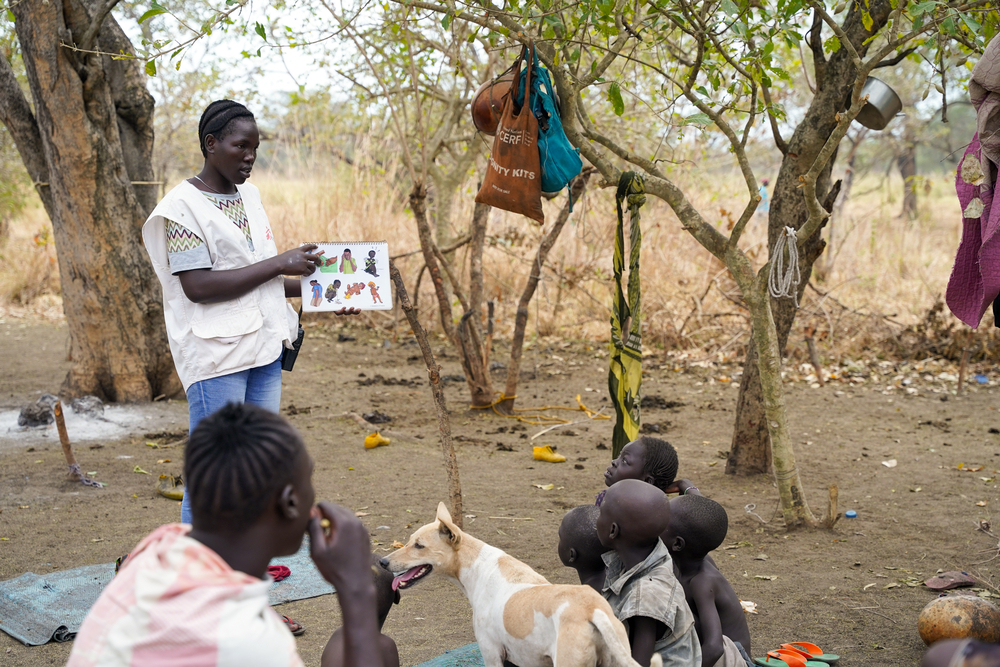
Beatrice Johnson, who is also from one of the cattle keepers’ communities, has been with MSF as a community health educator since 2022. During her two years experience, Beatrice realized the importance of awareness and sensitization activities in these remote areas.
In South Sudan, communities trust and rely on traditional healers. Our outreach team has deep knowledge and understanding of traditional health customs and beliefs, being most of the time themselves from the communities, just like John and Beatrice. They engage with traditional healers to discuss treatments and medical care, raising awareness among communities.
These efforts help MSF save lives by raising community awareness. As an example, blood donation is critical in Southern Sudan, but there aren’t enough donors. To address this, Beatrice and our outreach team go into the communities to increase awareness and share experiences about the importance and benefits of blood donation, both for patients and donors.
Where clean water saves lives
During long outreach trips, the environmental health staff also joins the mobile teams. With half of the South Sudanese households relying on surface water as their main water source, providing clean and safe drinking water protects people from waterborne diseases such as cholera.
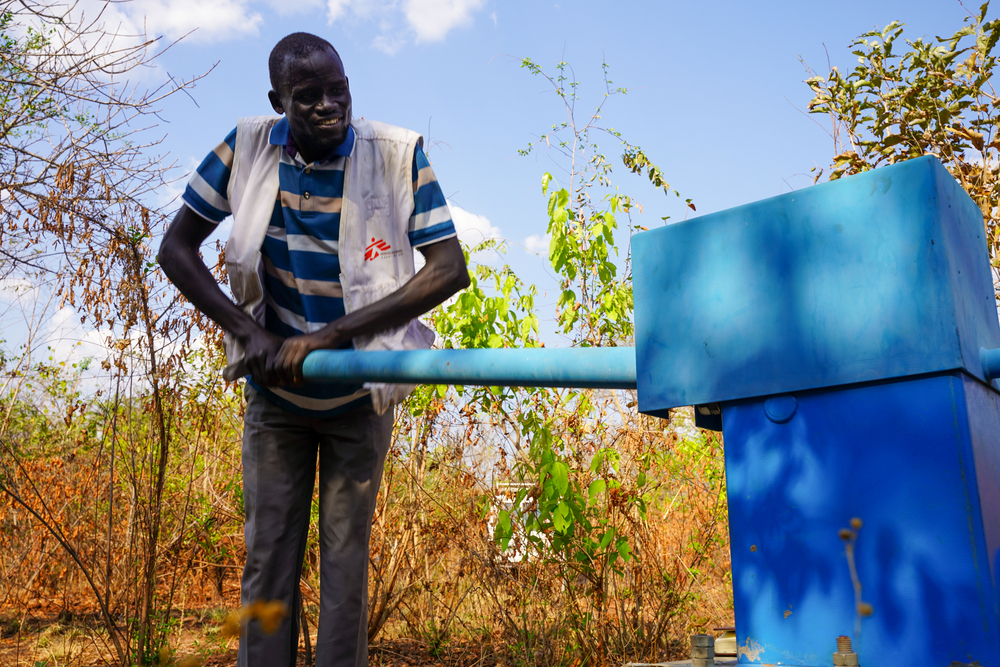
Where women are left behind
South Sudan is a vulnerable country with some of the world’s lowest socioeconomic indicators, especially for women and children. One out of every ten children die before the age of five, and the maternal deaths rate is among the highest in the world: around 1,223 per 100,000 live births.
For remote communities, living this far from functioning health facilities puts many lives at risk, especially pregnant women and newborns, who require specialised care. In South Sudan, 80% of women give birth among their community, most of the time assisted by traditional birth attendants. Kaka Kolobitot is one of them.
When she was pregnant, Kaka Kolobitot suffered from severe malaria, a condition that can be fatal both for the mother and the baby. The infection can be directly transmitted from the mother to the foetus, but above all, high fever can terminate the pregnancy or induce premature labour – and at only seven months, Kaka gave birth to her son, in the middle of the cattle camp.
Fortunately, Kaka was aware of the risks associated with premature birth due to information provided by community health workers. So, when she gave birth at seven months, she understood she needed to go to a medical facility. When she arrived in Maruwa after two days of walk, she was referred to Boma by our teams so that we could provide higher level of care for her newborn. When she arrived at the MSF-supported Boma primary healthcare centre, her son did not have a name yet, so our team called him “Baby Kaka”.
One month later, Baby Kaka and his mother are still being taken care of, with medical staff closely monitoring the weight gain and general health of the young survivor.
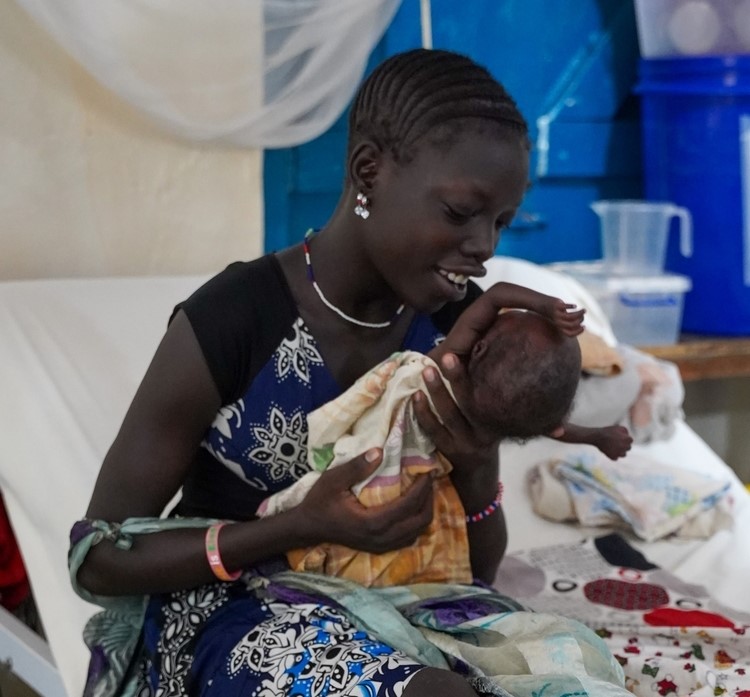
Twelve years after its independence, South Sudan still has some of the worst health indicators in the world. Life expectancy is among the lowest globally, reaching only 62 years. Yet approximately two-thirds of the health facilities are non-functional and where healthcare exists at all, medical infrastructures, including secondary level ones, often lack supplies, drugs and qualified healthcare workers.
Our mobile teams will do what it takes to provide medical care where it is needed the most. With rainy season further hampering access to remote communities, MSF mobile teams constantly adapt to ensure the delivery of medical care across the country, using cars, motorbikes, boats and walking for several hours – if necessary.
